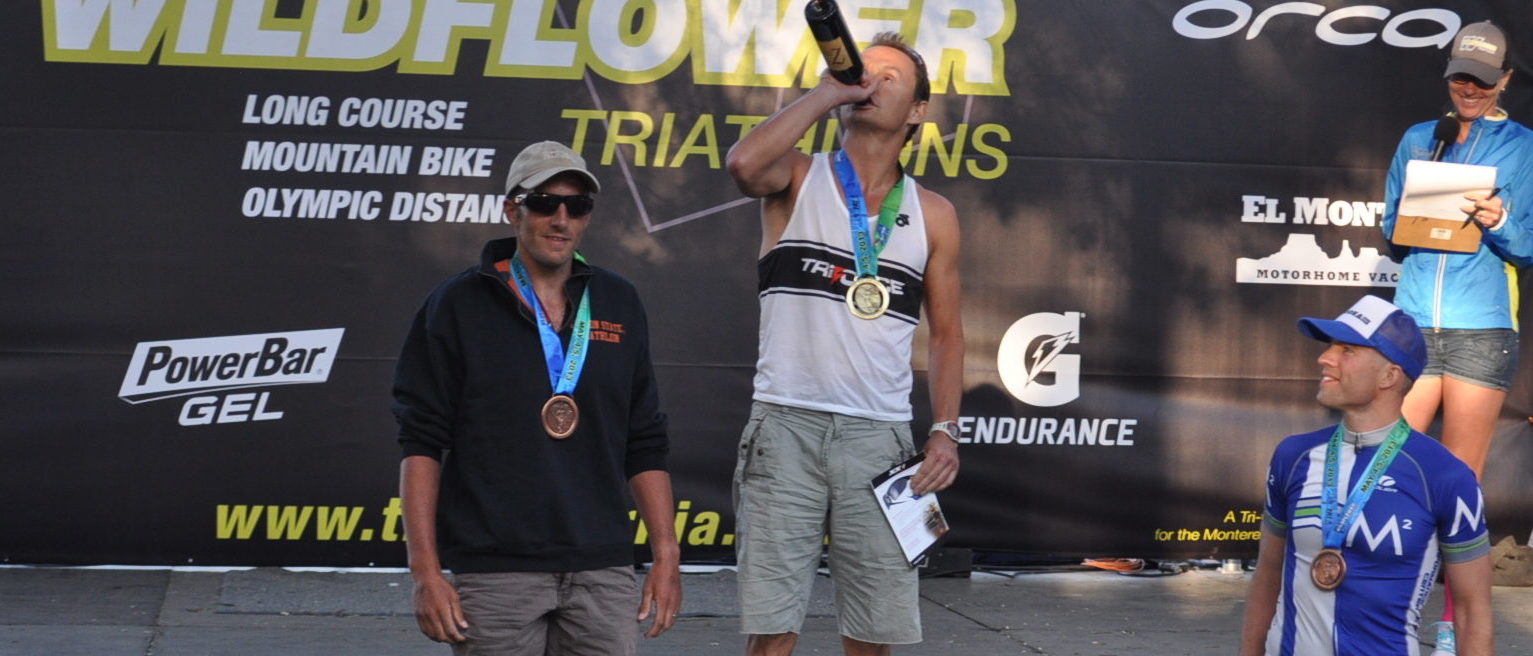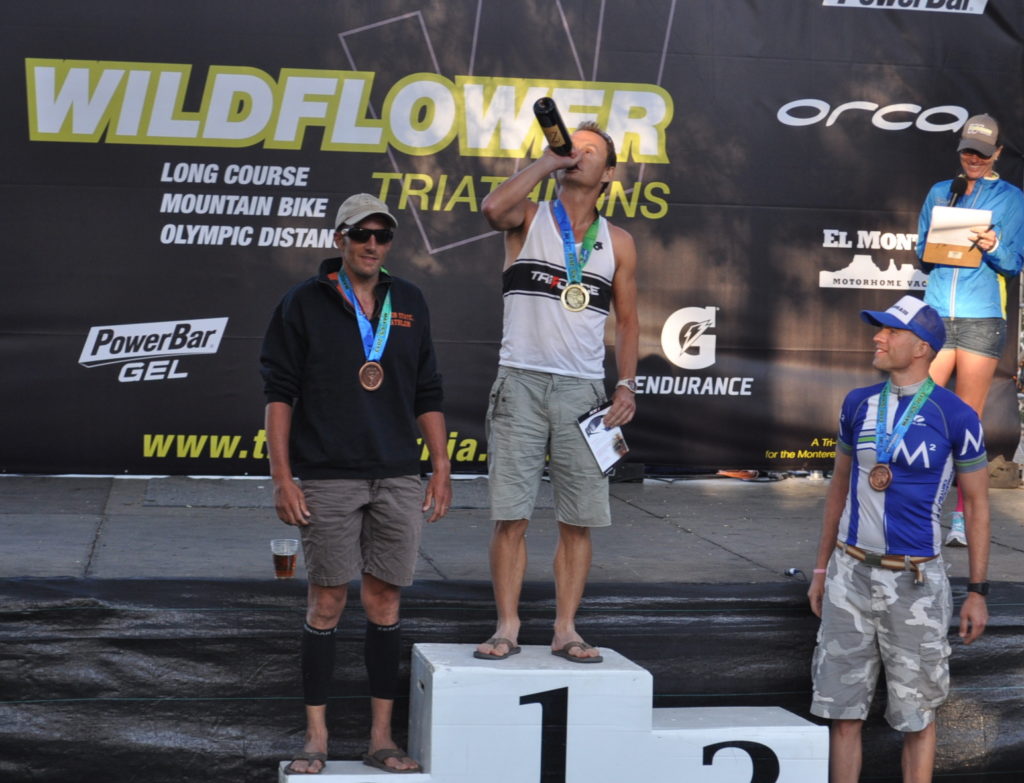The human body is amazing. If you keep gradually adding more and more stress, the body will adapt and get stronger and stronger. BUT ONLY IF YOUR BODY IS IN AN ADAPTIVE STATE. If you are not in an adaptive state, you might be able to train, but you won’t ABSORB the training well and you won’t get faster.
You are likely NOT in an adaptive state if you are: * burning the candle at both ends * sleep deprived * on an irregular sleep schedule * dehydrated * stressed out * having a negative attitude * under fueled (not enough calories) * undernourished (not enough nutrients)
Good hydration is a key to turning your training into adaptations… and victory
Doing the six things below will lay a strong foundation for adaptation. As a bonus, all of the following with enhance EVERY area of your life (work, relationships, zest for life, energy levels). Treat them with almost with the same dedication as swim, bike, and run and you go a long way toward maximizing your adaptation and your life.
1. START BY BLOCKING OUT YOUR SLEEP. Most people need 7 to 9 hours depending on the person. A genetically lucky few need less. You probably know “your number.” I personally need 8. Put it into your calendar and if at all possible stick to a regular schedule. For me it’s 11-7. If possible, use power naps if you are tired in the afternoon. There is plenty written on sleep hygiene. In my opinion, sleep is more important than nutrition. Sleep is almost as important as swim, bike, run.If you struggle sleeping, get on it!
2. FUEL. Be sure to fuel during all longer workouts and to eat after ALL workouts. Those are times when the body is primed to take in what you eat and turn it into fuel instead of turning it into body fat. If you are avoiding processed foods and want to “fuel healthy” I recommend using dates (which are higher in glucose than most fruits.) Eat a meal ASAP after training. Plan ahead and have food ready. You don’t need
3. HYDRATE. I’m guilty of neglecting this. Drink 1 bottle per hour during workouts (more in heat). Drink a glass or two first thing in the AM and have a glass with every meal. There’s no need to go crazy with hydration (the body can only hold so much), but just don’t neglect it. I notice a correlation between being dehydrated and feeling like my muscles are “rough” like dried out rubber instead of supple and soft.
4. REDUCE STRESS AND MAKE FRIENDS WITH STRESS. Stress pumps your body full of cortisol and adrenaline which is a great way to get things going in the short term. But when your body stays in a stressed state is hurts your ability to adapt and compromises your immune system. If you run your engine in the red for too long, it will blow up. The best athletes I’ve coached are typically very even keel. They take life as it comes and they don’t get very up or down. No drama. There are a couple exceptions, but those people seem to enjoy challenges (and draand attach positive feelings to what we might call “stress”. So.. it’s not stressful for them. I can honestly say that I have observed a clear and massive correlation between someone’s reaction to stress and their triathlon performance AND work performance. People who “shut down” their training (and other areas of life) to deal with something stressful (big project due at work! gunning for promotion! boss is being a dick!) seem to have much worse outcomes IN LIFE than people who are much less dramatic about it. Techniques for reducing stress include meditation, deep breathing, etc. AND EXERCISE! Cutting out training when you are stressed is a terrible idea! Remember, you might think of stress as being a mental thing but the results of stress are PHYSICAL.
5. KEEP A POSITIVE ATTITUDE. Have a belief that YOU CAN DO IT. That there IS A SOLUTION. That life is FUN. That things happen for a reason. That you will make the best of every bad situation. THE MIND IS POWERFUL.
6. EAT HEALTHY. This is one where I am definitely guilty. IN THE SHORT TERM my body thrives on eating a ton of calories and junk food. I had my best races in recent years after eating McDonalds the night before. But, in the long term I end up fat and tired from that kind of eating. Even in the short term, I would have great workouts on that diet but my energy levels and moods for rest of the day are garbage. Leaving aside fad diets, we know that fruits, veggies, nuts, seeds, healthy oils and moderate amounts of healthy proteins are good for us. Eat a diet with a ton of that stuff and much less of the stuff we know is not good for us (sugar, breads, packaged snack foods, fried foods).
If you are busy or overwhelmed it’s tempting to neglect your sleep, nutrition, etc, and just focus on getting your training done. Don’t fall into the trap! Here at TriForce, we’d rather slightly under-schedule your training (maybe putting an athlete on a 10 hours per week plan or a 1 hour per day plan), but give you more time for sleep and to take care of the rest of your foundation. Without a strong foundation for adaptation you might be able to train… but you will struggle to get faster.


